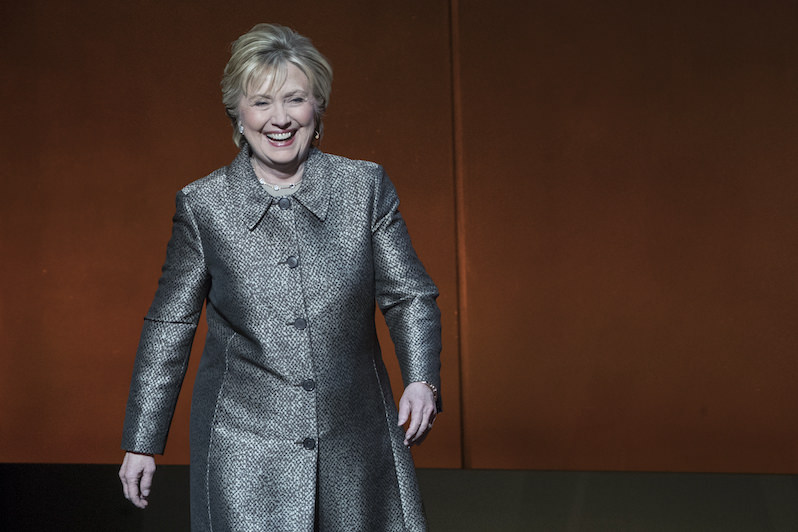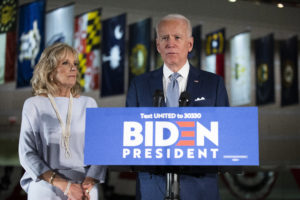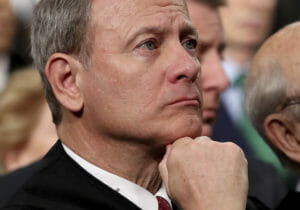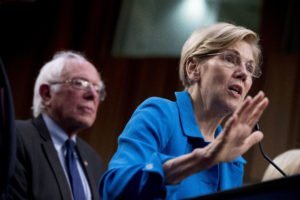Hillary Clinton Does Not Belong in the Anti-Trump Resistance Movement
The Democratic presidential contender is back in public view, claiming she’s part of the "resistance"—but it’s just another selling point she and establishment Democrats are pushing. Hillary Clinton at the Women in the World Summit in April in New York City. (Mary Altaffer / AP)
Hillary Clinton at the Women in the World Summit in April in New York City. (Mary Altaffer / AP)
Hillary Clinton at the Women in the World Summit in April in New York City. (Mary Altaffer / AP)
“I’m now back to being an activist citizen and part of the resistance,” Hillary Clinton said on May 2 during a televised conversation with Christiane Amanpour at an event for Women for Women International. Clinton is identifying with the broad popular resistance that has mobilized against Donald Trump after the 2016 election, and she is not the only Democrat to do so. The party that failed to win either the Senate or the White House last November is positioning itself as the best bulwark against Trumpism. In March, newly elected Democratic National Chairman Tom Perez announced triumphantly: “We’re going to be the resistance to Donald Trump. … We have the most important lever of power, the power of we, the most important word in a democracy.”
It is tempting to see the Democratic Party as the only way out of the Trumpocalypse. But let’s not be fooled. Before Clinton called herself part of the “resistance,” she was a self-proclaimed centrist and moderate.
American voters fell into three broad categories last November, the smallest of which voted for Trump (25.5 percent). Edging just a sliver ahead of him was Clinton with the second-largest number of voters (25.6 percent). Larger than either of those groups by far was the group that simply did not vote (46.9 percent). If the 1.7 percent of conservative voters who chose Libertarian candidate Gary Johnson had cast ballots for Trump instead, Clinton’s impressive-sounding popular vote margin of 3 million voters, which she touted proudly at the event with Amanpour this week, would have been eviscerated.
Clinton also stated unequivocally that had the election taken place before FBI Director James Comey publicized that the FBI was reviving its investigation into her emails, she would have certainly won the election. She cited pollster Nate Silver, who posited that Comey’s unorthodox statements had an impact on undecided voters in swing states. She also blamed WikiLeaks for leaking her campaign’s internal emails at inopportune times. But at no point did she explain why her vote margin against the worst, most clownish candidate in recent memory was so close that one bad allegation could ruin her chance at the White House. Nor did she refute the veracity of the leaked emails, which confirmed so many Americans’ view of her as corrupt and beholden to Wall Street.
It is likely true that Clinton would have been president today had tiny aberrations that occurred over the course her campaign not thrown her catastrophically off course. But her campaign should have been far more immune to such aberrations given her rival. If Clinton had been truer to the Democrats’ stated principles of progressivism and put forth a Bernie Sanders-like platform of economic justice with a strong critique of big banks and Wall Street, her poll numbers would likely have been higher than Trump’s, and the damaging revelations from Comey and WikiLeaks might not have made enough of a difference to cost her the election.
It is true that had Clinton become president, she would have made a much better “statesman,” conducting foreign policy like her Democratic predecessors — Barack Obama and her own husband — with a combination of diplomacy and merciless bombing justified through eloquent denouncements of terrorism. Speaking to Amanpour, she said with impressive maturity, “Negotiations are critical. But they’ve got to be part of a broader strategy, not just thrown out on a tweet one morning and say, ‘Hey, let’s get together and see if we can’t get along.’ ” Indeed, it would be unimaginable for Clinton to have used social media to sow confusion and chaos through impetuous tantrums, as does the current White House occupant. But would Clinton’s foreign policy have been terribly different than Trump’s as viewed from the war zones we have targeted? As if taking foreign policy advice from his former rival, Trump bombed Syrian government targets just hours after Clinton said about Bashar al Assad’s Syrian regime: “I really believe we should have and still should take out his airfields.”
While Clinton is examining what led to her loss, and a new book, “Shattered: Inside Hillary Clinton’s Doomed Campaign,” co-authored by Amie Parnes and Jonathan Allen, has attempted to dig into the minutiae of the story, there is little examination of why the percentage of Americans who voted for Clinton was so close to the percentage of Americans who voted for Trump, or why even more Americans rejected both candidates. Many of us are scratching our heads at why there is so little regret among Trump voters 100 days into his presidency, as a new Washington Post/ABC News poll revealed. There is anecdotal evidence of regret among some Trump voters, but only 4 percent said they would back another candidate today. Meanwhile, according to the poll, a whopping 15 percent of Clinton voters regret backing her. Trump supporters trust their president, and no amount of news coverage exposing his lying, flip-flopping or blustering will persuade them to change their minds — because he has convinced them that the media perpetuates “fake news.”A very small sample of Trump supporters explained to Vice News how they feel about the president after his first 100 days. What is most interesting about these responses is that some of them acknowledge Trump’s stumbling on the Affordable Care Act and actually back a single-payer system, with one person saying, “I want socialized health care.” With most Democrats having thrown their weight behind the Affordable Care Act instead of backing the hugely popular single-payer system, it is no wonder so many Americans stayed home on election day.
Trump voters also told Vice that they are happy Clinton is not president. One person went so far as to say, “I do not trust Trump,” but added, “What I can say is that I have absolutely no regrets voting for him over Hillary.”
The political dialogue over last November’s election remains important because it is crucial for those of us who want progressive change in this country to not fall into the Democratic Party trap once more and pour all our energy into electing its members. If the Democratic Party sucks up the energy of the resistance to Trump, we will be right back where we started last year. If the Democrats couldn’t beat Trump in 2016, they won’t beat the Republican Party in 2018, and they won’t beat Trump in 2020 — unless they change their tune. The only way to get them to change is to force them to adopt progressive ideals in deed, not just in word. Clinton and Perez trying to tie themselves to the resistance is bad news for progressives. The resistance to Trump should not be tainted by establishment Democrats.
Since January the mass demonstrations, from the Women’s March to the May Day march, have shown an impressive opposition to Trump’s madness. Grass-roots organizing at Congressional town hall meetings have thus far helped keep the Republicans’ macabre vision of health care at bay. Unfortunately, there have been a disturbing number of people within the movement echoing Clinton’s line on “Russian interference” with the election as a way to explain why Trump is in office. We are desperate to understand why and how such a madman has hijacked our democracy, and a sordid tale of backroom corruption is much more seductive than the more mundane and discomforting explanation that Clinton was not good enough.
If Democratic Party members can simply sweep away all the real reasons why non-Democratic Party loyalists don’t trust them, they can continue to try to win elections without translating their stated ideals into policy, and most of the time they will lose as they have been doing. But that means that most of the time Republicans will win, to the detriment of all of us, not just the Democratic Party.
Clinton may want to consider herself part of the resistance. But we must resist the temptation to have her on our side. The resistance must reject Clinton, Clintonism and the establishment Democratic Party if it wants to truly undo the Trump presidency.
Your support matters…Independent journalism is under threat and overshadowed by heavily funded mainstream media.
You can help level the playing field. Become a member.
Your tax-deductible contribution keeps us digging beneath the headlines to give you thought-provoking, investigative reporting and analysis that unearths what's really happening- without compromise.
Give today to support our courageous, independent journalists.






You need to be a supporter to comment.
There are currently no responses to this article.
Be the first to respond.